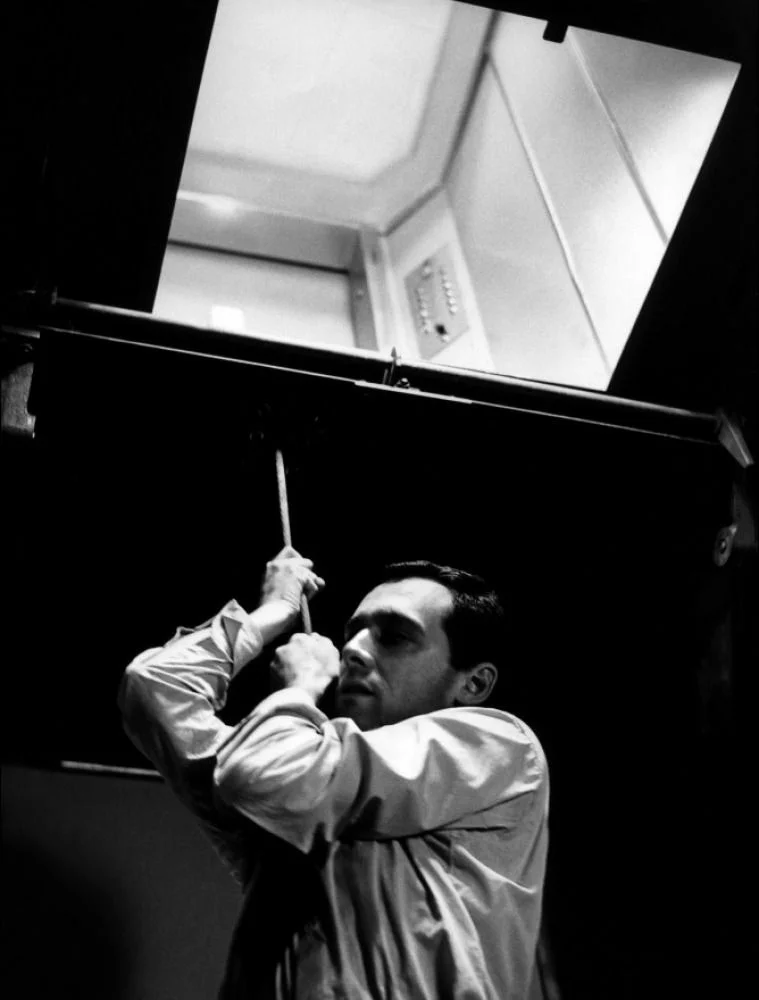Summary
A man murders his employer, which sets off a series of crimes.
My Thoughts
I’m not incredibly familiar with the work of Louis Malle, but I had seen “Black Moon” before watching this film. “Black Moon” was something bizarre and dreamlike, and the first time through, I didn’t really get what Malle was going for. (I’m actually watching “Black Moon” again later tonight, so I’ll see if it makes any more sense the second time through) Having only seen “Black Moon”, however, I expected something much different from this movie. This is a twisty, slick, stylish noir thriller; it’s full of surprises, it’s super cool, and it’s surprisingly intense at moments.
Improvisational Jazz and Crimes
(SOME SPOILERS IN THE FOLLOWING PARAGRAPH)
We have four main characters and three main plotlines in this film: Florence Carala (Jeanne Moreau, “Jules and Jim”), the wife of Simon Carala (Jean Wall) and mistress of Julien Tavernier (Maurice Ronet, “The Fire Within”). Florence and Julien meticulously plan out the murder of Florence’s husband, and their subsequent escape, but when a tiny detail goes wrong Julien leaves his car running, and ends up trapped in an elevator. Meanwhile, a spontaneous thug named Louis (George Poujouly, “Diabolique”) and his girlfriend Veronique (Yori Bertin, “The Nun”) steal Julien’s car and flee the city. Florence sees Julien’s car and believes she saw Julien in the car with a younger woman. Thinking her lover has abandoned her, Florence wanders the streets of Paris in a dreamlike state.
(SPOILERS END)
The bluesy soundtrack to this movie really elevates the whole thing. Miles Davis wrote the music for this film and it is so freaking smooth, and surprisingly diverse. There are times when the blues adds a lot of tension when it needs, other times when it creates a dreamlike world for one of our protagonists to walk through, other times it makes you feel love and heartbreak. Davis is fantastically emotional on trumpet, and the whole soundtrack really gives this movie extra “oomph!”
This film has everything a noir fan could want; a crime that goes wrong, a bluesy soundtrack, killer black and white cinematography, a dreamy femme fatal, and above all a bleak outlook. It’s hard to believe that this was Malle’s first film; it’s got so much cool style, so much tension, and it’s so diverse in it’s plot. The script itself was based on a novel by Noel Calef, and Calef himself wrote the first draft of the script before Malle and Roger Nimier rewrote the second draft. I have not read this book, but apparently it’s a rather faithful adaption. It’s a wholly original premise, and it’s impossible to predict what’s going to happen next. At the beginning of the film, Florence and Julien seem to think they have everything figured out, but when one detail throws a wrench in their plan, they have to improvise over and over again. The result feels as improvised as the jazz soundtrack; it’s wonderfully frenetic and fast paced.
One of the best scenes in this movie is when Julien discovers the trap door in the bottom of the elevator and decides to try to climb down the wire. The silence in the movie is a little jarring, because most of the film has that Miles Davis soundtrack behind it. The tension that scene creates is incredible, and the way Malle executed it was perfect. He starts by establishing how high the elevator is from the ground, then shows how difficult it would be for Julien to open the door below him, but then Julien still goes ahead and tries. Malle keeps raising the tension, bit by bit, creating one of the tensest moments I’ve ever seen in a 1950’s film.
Louis and Veronique’s unpredictability is another great thing in this movie. It’s almost impossible to tell what they’re going to do next. At first, I was unsure why the film would take away from the Florence/Julien storyline, and I felt the scenes with Louis and Veronique were a little humorous, but out of touch with the rest of the film. After the motel scene, I realized how wrong I was. Their storyline is a lit firecracker that explodes in your hand before you can drop it.
This movie does have a few overly drawn out scenes, particularly with Florence wandering through the streets of Paris. I usually really like dreamlike sequences through old European cities. Where “La Dolce Vita” does this sort of thing spectacularly, showing off Rome in all its glory, the scenes in “Elevator to the Gallows” go on a bit too long at times. Though almost all of the shots are beautiful in all their noir black and white beauty, the scenes do start to feel a little overindulgent after a while. That’s still a small bone to pick with a film so tense, so wonderful looking, and so unpredictable.
Verdict
“Elevator to the Gallows” is wonderful. I absolutely recommend this movie, far more so than “Black Moon”. It's a movie I think that almost everybody could enjoy. Based on just the two films of Malle’s that I’ve seen, I’d like to assume he’s a pretty diverse director. He is certainly a director that interests me, and one I’ll be sure to try to see more of. This is a movie that puts a French spin on noir in one of the coolest, most stylish ways possible.
End Note: For those interested, “Black Moon” did not make more sense the second time through. I won't be writing a review on that one, because I have no idea what to say.
Post Script on End Note: Fellow TMM reviewer Michael decided to give “Black Moon” a go and he ended up writing about it.
Review Written By:





